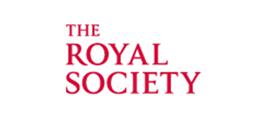- View more resources from this publisher
 Royal Society
Royal Society
Maggie Aderin-Pocock
You may have seen Maggie Aderin-Pocock presenting BBC's The Sky at Night, asking Jeremy Paxman to hold a torch while she described a lunar eclipse, or on the sofa of a breakfast television show or The One Show talking enthusiastically about science. You may not know that she has hung out of the back of military aircraft photographing the vapour trails of missiles to improve fighter aircraft 'countermeasures', that she has improved metal detectors used to find unexploded mines, or that she has led projects to make instruments placed on telescopes or satellites to inspect the Earth and the Universe. You may also not know that she was born in London to parents who emigrated from Nigeria in the 1950s, that she was inspired by Einstein, the Clangers and Star Trek, and that she has, at times, struggled with reading and writing due to dyslexia.
Activities
*Primary – Exploring the Solar System
*Secondary – Gravity, rockets and putting satellites in orbit
These activities are part of the Inspiring Scientists collection, a series of resources to help develop students’ understanding and awareness of science and the diversity of scientists.
Show health and safety information
Please be aware that resources have been published on the website in the form that they were originally supplied. This means that procedures reflect general practice and standards applicable at the time resources were produced and cannot be assumed to be acceptable today. Website users are fully responsible for ensuring that any activity, including practical work, which they carry out is in accordance with current regulations related to health and safety and that an appropriate risk assessment has been carried out.




